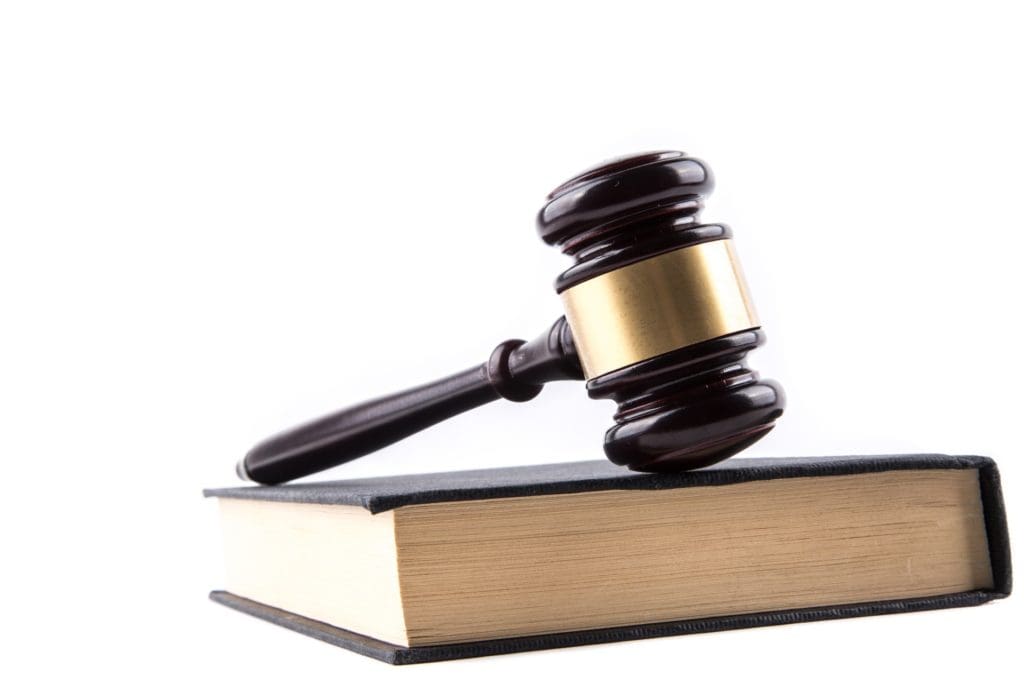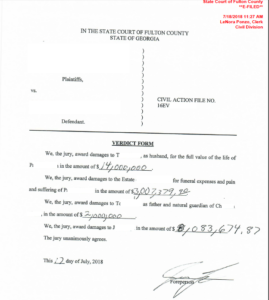Some parts are taxable and some are not. A settlement for personal injury may include the following elements (a) pain and suffering, (b) medical expenses, (c) lost wages, (d) emotional distress, and (e) punitive damages. Each of these are treated differently for tax purposes.
Generally speaking payments for pain and suffering are not taxable. IRC §104(a)(2) excludes from taxation settlements “on account of personal physical injuries or sickness.” Accordingly, payments for pain and suffering related to personal injury are not taxable. Likewise, payments for medical expenses are not taxable “if the taxpayer has not previously deducted her medical expenses.” See prior cite. Thus, if you have deducted your medical expenses from treatment, this portion may be taxable.
Somewhat surprisingly, lost wages are also considered to be payments “on account of personal physical injuries” and are not generally taxable. This is limited to payments of lost wages for time in which the plaintiff was actually out of work due to their injury. If the plaintiff was out of work for another reason unrelated to the injury, this would be taxable.
There are unique rules for emotional distress claims. The IRS states that these are excludable from income only to the extent the payments exceed the out of pocket medical costs. IRC §104(b)(6). This means that payments above and beyond the amount that the plaintiff actually incurred for treating the emotional distress would be taxable.
Punitive damages are also exempted from the definition of excludable income in personal injury settlements. Punitive damages are not awarded to compensate the plaintiff for an injury. They are awarded to punish the defendant for egregious conduct (defined often in the law as intentional, wanton, or reckless indifference to the consequences). Because of this, the IRS does not treat these payments as stemming from the personal injury.
An example may assist in understanding. Let’s assume that Plaintiff A is injured in a car accident with Defendant B. Plaintiff A sues Defendant B for personal injuries, pain and suffering, medical expenses, lost wages, emotional distress, and punitive damages. After litigation, the case is settled in the following amounts:
- Pain and Suffering: $10,000
- Medical Expenses: $5,000
- Lost Wages: $2,500
- Emotional Distress: $2,500
- Punitive Damages: $5,000
- Total Settlement: $25,000
Applying the foregoing general principles, the $10,000 for pain and suffering and $2,500 for lost wages are not taxable (assuming the plaintiff actually missed work due to their injuries). The punitive damages are clearly taxable. The taxability of the medical expenses and emotional distress claims depends on more facts. If Plaintiff A had previously deducted these medical expenses from their taxes, then the payment is taxable. If Plaintiff A had not deducted these medical expenses form their taxes, then the payment is not taxable. The Emotional Distress payment is only excluded to the extent Plaintiff A incurred medical expenses for the emotional distress claim.
As you can see, it gets kind of tricky. Although we have handled hundreds of Atlanta truck accident, Atlanta brain injury, Atlanta spinal injury, Atlanta pedestrian accident, Atlanta wrongful death, Atlanta bike accident, and other cases, we are not tax professionals. Before filing your taxes, you need to seek the advice of a competent accountant to assist you with managing the settlement of a personal injury claim. Contact us today for a free consultation.







